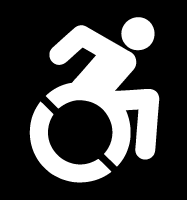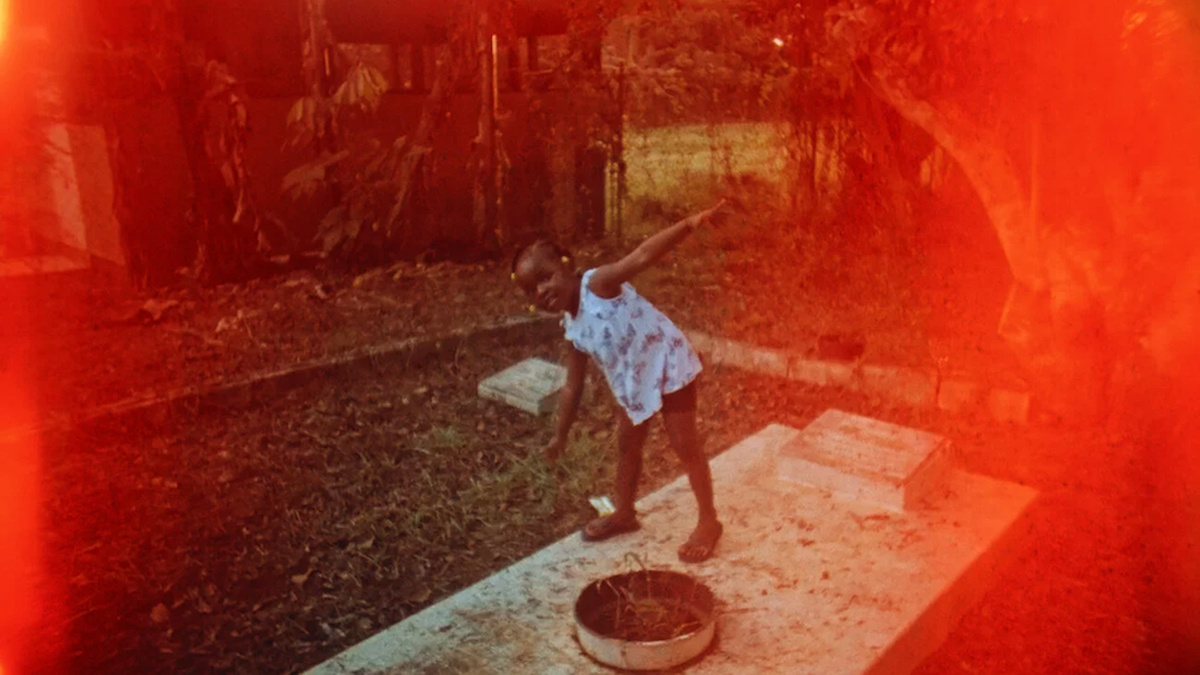FieldARTS x Water As Method symposium
Submerged Cinemas
Fri 20 June 2025

Wheelchair accessible

Hope Pearl Strickland, a river holds a perfect memory 2025
The concluding event of the Water as Method symposium invites audiences into a riverine and lagoonal cinema, with an evening of moving image and discussion with FieldARTS artists, presenting films by Hope Strickland, Ifor Duncan, and Sonia Levy and discussion moderated by Fred Carter. Engaging with rivers and lagoons as political, material, and mnemonic bodies, these films explore hydrological geographies as archives of colonial extraction, environmental degradation, memory, and resistance.
Each work stages forms of hydro-reflexivity: a cinematic practice of thinking and sensing with water—not only as subject but as method, material, and media. Across Jamaican and UK waterways, the Venetian Lagoon, and the Cauca River in Colombia, these films immerse us in turbid ecologies, sedimented temporalities, and submerged histories.
The screening will be followed by a moderated discussion with the artists, and FieldARTS founder Fred Carter, opening space for collective reflection on watery methods, hydro-necrology, transnational hydrosocial imaginaries, and the ethics of filmmaking ‘from below’.
Hosted as part of the symposium Water as Method: Space, Place & the Hydrological Gaze in Moving Images hosted at Glasgow School of Art. This event and symposium are curated by Kelly Rappleye (AHRC-SGSAH PhD, Glasgow School of Art, School of Fine Art) and organised in collaboration with FieldARTS research programme (hosted by Infrastructure Humanities Group, University of Glasgow).
Film Programme:
Ifor Duncan — Soy el Río Cauca (2025)
22 minutes. Spanish with English subtitles
“Soy el río Cauca y mis aguas podrían afectar tu salud” [I am the river Cauca and my waters may be harmful to your health] (two-channel video, 15.00, 2024) unpacks the compounded social and environmental impacts of the Hidroituango megadam on the Cauca river, Colombia. Through the voices of members of Movimiento Ríos Vivos Antioquia (MRVA), footage and submerged sound from the reservoir, the video tells the story of the concurrent mourning of the loss of family as well as the river.
Sonia Levy — We Marry You, O Sea (2023)
26 minutes. Underwater video, sound.
We Marry You, O Sea engages with Venice and its lagoon “from below,” with the aim of focusing attention on the city’s submerged, life-giving, and altered bio-geomorphological processes rather than on its often-recounted political and military histories. Underwater filmmaking opens new ways of knowing the materialities of the Venice Lagoon and exposes a fractured and troubled environment that complicates mainstream historical narratives that start above the water’s surface. By attuning to the ebb and flood of the lagoon, we start sensing the interplay between land and water, life and decay, and the intimate processes shaping this environment. Noticing the kinds of life made possible in this damaged watery space compels us to delve into the ways it has been profoundly transformed.
Hope Pearl Strickland — A River Holds a Perfect Memory (2024)
17 minutes. Digital, 16mm, archival. Commissioned by Film and Video Umbrella and Touchstones, Rochdale.
This lyrical, layered work meanders across Jamaican rivers and Northern English reservoirs, meditating on water’s entanglement with labour, colonial time, and diasporic memory. Shifting between archival footage, 16mm film, and LIDAR scans, Strickland charts how waterways reflect and remember industrial impact and transatlantic resistance. The film draws its title from Toni Morrison and builds from protest actions in Jamaica’s St Elizabeth parish, foregrounding water’s capacity to hold submerged social tensions and stories.
Artist Bios:
Sonia Levy is a Berber-Polish artist filmmaker whose
interdisciplinary, site-responsive practice explores the entanglements
of Western extractivism and hydrosocial transformation. Her work has
been shown at Tate Modern, ICA London, Arnolfini, Ocean Space, ZKM
Karlsruhe, BALTIC, and internationally across museums, art centres, and
research forums. She was the 2023–24 European Marine Board
artist-in-residence for the UN Ocean Decade and the 2022 S+T+ARTS4Water
resident with TBA21–Academy in Venice. Her writing has appeared in MIT
Press, Thames & Hudson, Antennae Journal, and Parallax. Levy has
presented research at Harvard GSD, NYU Gallatin, UC Santa Cruz, and
Goldsmiths, where she is also an external member of the Centre for
Critical Global Change. She lectures at the RCA School of Architecture,
co-convenes the collective howlikeareef.net, and serves on the Steering
Committee for the UN Ocean Decade’s ‘Connecting People and the Ocean.’
She is currently a guest researcher at NICHE, Ca’ Foscari University.
Ifor Duncan is Postdoctoral Researcher on the EcoViolence ERC project at Utrecht University. His interdisciplinary research and art-practice focuses on political violence in the contexts of devastated river systems and dispossessed communities. He approaches the weaponisation of rivers as borders, mega-dams, and as the mediums and dynamic archives of genocide through cultural memory and an audio-visual practice that involves submerged methods. Ifor has a PhD from the Centre for Research Architecture, Goldsmiths, where he was also Lecturer, and has been Postdoctoral Fellow in Environmental Humanities at NICHE, Ca’ Foscari, University of Venice.
Hope Pearl Strickland is an artist-filmmaker and researcher from
Manchester, UK with British-Jamaican heritage. Her work sits at the
intersection of experimental film and documentary practices, moving
across archival, analogue and digital formats in order to quietly sit
across from and outside of time. Her practice wrestles with violence,
disparate colonial landscapes and attempts to ask how we might live in a
world and relate to one another with care whilst amongst and against
systems of power and control. Hope’s work has screened internationally
at film festivals including the 59th New York Film Festival, BFI London
Film Festival, Alchemy Film and Moving Image Festival, Scotland and Exis
Experimental Film Festival, Seoul. She was awarded the 2023 Aesthetica
Emerging Art Prize.
Fred Carter is a postdoctoral researcher at the University of Glasgow and founder/director of FieldARTS, a residency programme for infrastructural fieldwork, currently hosted by the University of Glasgow’s Infrastructure Humanities Group. He was recently a Fellow at the Rachel Carson Center in Munich. His current monograph, Poetry & Energy After 1973, explores petrocapitalism, exhaustion, and poetic refusal. His research and practice traverse ecological poetics, energy humanities, and experimental field methodologies. His chapbook Outages is published with Veer2.
FieldARTS is a research residency programme exploring fieldwork and practice-based methods for studying environmental, hydrological, and infrastructural sites. At present, the residency is hosted by the Infrastructure Humanities Group.
Kelly Rappleye is an AHRC/SGSAH PhD researcher at Glasgow School of Art and and arts curator with 16 Collective. Her research and practice focus on the role of contemporary art in urban place-making and spatial politics, informed by her background working in community mental health, with a particular interest in moving image and cultural memory. Kelly was a 2024 member of the British Art Network’s Emerging Curators Group and a 2024 Venice Biennale Fellow with the British Council, and a 2024-25 FieldARTS resident. She holds an MA in Contemporary Art Theory from Goldsmiths, UoL and has presented her research at various conferences. Her doctoral research on hydropoetics in contemporary Scottish moving image considers contested memory and colonial residues in urban landscapes. Kelly has curated programmes with organisations such as ArchiFringe, Tate, and LUX Scotland.